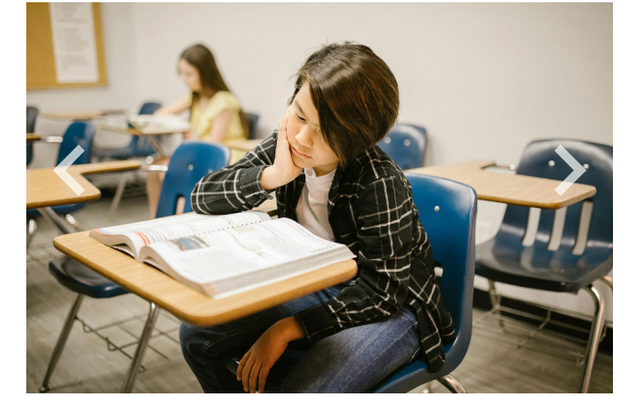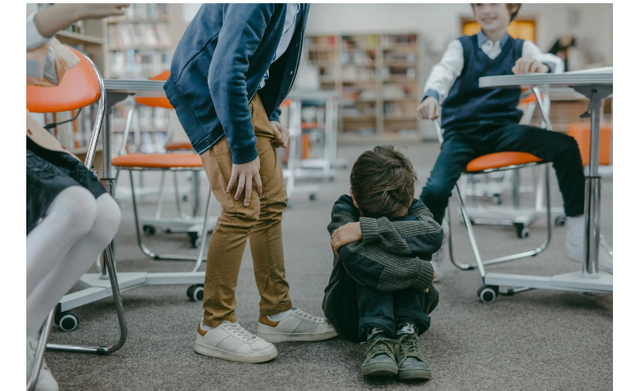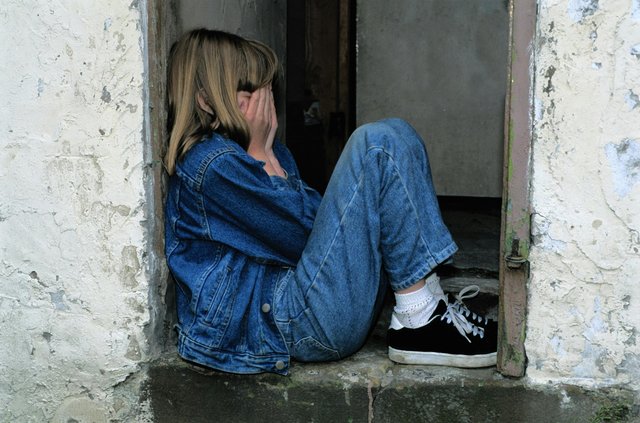Hello, Steemians from all over the world. Greetings to you all. I trust you all feel blessed and super fantastic. I'm excited to join this contest today to talk about my perspective on Children’s trauma and the effects it has on them.
The impacts of childhood trauma can be profound and long-lasting. Traumatic events, such as abuse, neglect, or a major loss, can cause a child to feel unsafe and insecure. This can lead to problems with trust, self-esteem, and relationships in adulthood. Traumatic experiences can also affect a child's brain development, making it more difficult for them to regulate their emotions and deal with stress later in life.

Pexels
There are various problems that children who have experienced trauma may face. These can include;
Anxiety
Depression,
Anger issues,
Difficulties with relationships
Challenges with impulse control.
Trauma can also lead to physical symptoms, such as headaches, stomachaches, and sleeping difficulties. Some of the most common childhood traumas include abuse, neglect, loss of a loved one, witnessing violence, and natural disasters.
Physical, sexual, and emotional abuse can all be very traumatic for a child. Physical abuse can lead to physical injuries, and it can also cause the child to fear the abuser and to have a negative self-image. Sexual abuse can cause a child to feel dirty, ashamed, and unsafe. Emotional abuse can lead to low self-esteem and difficulty forming healthy relationships.

Pexels
Another thing is neglect, which is the failure to meet a child's basic needs, such as food, clothing, and shelter. Neglect can also include emotional neglect, which is the failure to provide emotional support and affection. Neglected children may feel invisible, unwanted, or unloved. They may also have problems with self-esteem, depression, and anxiety.
Various things can be done to protect children from social bullying, such as
Teaching them how to stand up for themselves and others.
Encouraging them to report bullying when they see it, and making sure that the school environment is supportive and safe.
It's also important to help children develop strong self-esteem and social skills, so
One way to protect children from social bullying is to teach them assertiveness skills. This can help them stand up for themselves respectfully and assertively, without being aggressive. Assertiveness skills, setting boundaries, and practicing confidence-building exercises.
Children should be taught the difference between good touch and bad touch as early as possible, and this should be an ongoing discussion. Some of the key points to cover include;
They should be taught that their body belongs to them, they can say no to unwanted touch.
They should tell a trusted adult if someone touches them in a way that makes them feel uncomfortable.
It's also important to emphasize that it's not the child's fault if they are touched inappropriately.
Another key part of teaching children about good touch and bad touch is talking about body parts and using the correct terminology. This helps children understand their bodies and makes it easier for them to communicate if something happens.
Additionally, it's important to empower children to say no to unwanted touch, even if it's from someone they know or trust.
Time: Parents need to take a great while of time to teach the children, while also being patient with them.
While it's true that parenting takes a lot of time and energy, some things should not be sacrificed to raise a good child. These include;
The child's sense of self-worth, their creativity, and their individuality. It's also important to maintain a sense of balance in the family so that the child doesn't feel like they're the only priority.
It's also significant to recognize that every child is unique, and what works for one child may not work for another. Parents should focus on finding the right balance for their own family, and not worry about following any one parent's parent.
Another key part of raising a good child is setting a good example. Children learn from the adults in their lives, and it's crucial to model the behavior that you want them to exhibit. This includes things like being respectful, honest, and kind.
Thank you very much for reading. I invite my friends @zekenem @pandora2010 and @aspiya to join me here.

My twitter link
https://x.com/Comfort2212/status/1766571245967958160?s=20
Downvoting a post can decrease pending rewards and make it less visible. Common reasons:
Submit
@tipu curate
Downvoting a post can decrease pending rewards and make it less visible. Common reasons:
Submit
Upvoted 👌 (Mana: 3/5) Get profit votes with @tipU :)
Downvoting a post can decrease pending rewards and make it less visible. Common reasons:
Submit
Greetings friend, of note is that the key part of raising a good child is setting a good example. Children learn from the adults in their lives, and it's crucial to model the behavior that you want them to exhibit. This includes things like being respectful, honest, and kind. Success
Downvoting a post can decrease pending rewards and make it less visible. Common reasons:
Submit